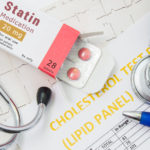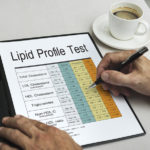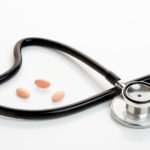By David Blyweiss, M.D., Advanced Natural Wellness
August 26, 2016
- High cholesterol doesn’t necessarily mean heart disease
- 3 heart tests more important than cholesterol
- Slash inflammation and protect your heart
For years, the words heart disease and cholesterol have become synonymous. You seldom heard someone use one term without immediately following it with the other.
This misconception – and the way the link is repeated over and over again – makes me extremely concerned about the health of your heart.
You see, high cholesterol is NOT heart disease. In fact, about 75% of all heart attack patients fall well within the recommended targets for LDL cholesterol.
The fact is your body needs cholesterol. It helps make hormones and vitamin D. It also produces bile acids that help you digest fats.
This means that folks like you are spending a lot of time and money – maybe even taking dangerous statin drugs – to bring your LDL levels down when it may not be a problem in the first place.
In the meantime, this can lull you into a false sense of security. And you may be ignoring other factors that could be much more important to your heart health.
Heart disease isn’t a one-trick pony. And cholesterol isn’t nearly your biggest concern. So let’s take at other areas – ones that may have a much greater influence on your heart health – that you should have tested.
MD Exposes the Hidden Danger to Your Eyes

When your eyesight starts to fail, it's a real problem. Suddenly you can't go to the grocery store... you can't get to the doctor if you have an emergency... you can't meet your friends for dinner…
Your "regular" doctor doesn't have time to keep up with the latest research. And the same goes for eye doctors. They go to school to learn how to fit you for glasses and contacts, but have no way of preventing the damage and loss of eyesight that threatens your freedom and independence.
Let me show you something that explains a LOT about how your eyes work.
In my FREE Special Report, I'll show you a HUGE, untapped resource for your eyes that safely and naturally restores clear, effortless eyesight.
Click here to get started...
3 Heart Tests More Important than Cholesterol
C-reactive protein (CRP) is an inflammatory cytokine that damages the delicate inner lining of your arteries. This damage causes your blood vessels to become smaller, rougher, thicker and less flexible. It also directly decreases the production of nitric oxide (NO) in your blood vessels.
This is a big problem, since nitric oxide is the gas that keeps your blood vessels wide open and relaxed for maximal blood flow. (High CRP levels and low nitric oxide are both linked to higher blood pressure, which further damages your arteries.)
With this in mind, it’s a good idea to ask your doctor to perform a high-sensitivity CRP test, known as hs-CRP. If your CRP measures below 3 mg/L (milligrams per liter) it’s considered a safe level. However, 3 and greater indicates risk and calls for additional testing and treatment.
Homocysteine is another inflammatory marker that should be looked into. When levels of this amino acid get too high, it irritates the lining of your arteries. It also causes your blood to clot more easily and may increase your blood pressure. This can be disastrous if your blood vessels are already stiff and narrow.
Many doctors don’t test for homocysteine. However, it could be a very important test if you want to know your true heart health. So don’t hesitate to ask your doctor for a homocysteine blood test. A measurement over 10 micromoles/liter (µmol/L) is considered high.
The damage from years of high CRP, homocysteine and blood pressure creates places where a certain type of LDL can cross into the inner lining of your arteries. There, it starts accumulating in the walls of the arteries. This is where plaque build-up starts.
However, “regular” LDL isn’t the problem. And lowering LDL levels will have no effect on this process. In fact, you can have cholesterol numbers well within target range and still be a victim of this process.
That’s because it’s the size of your LDL particles that counts the most.
You see, some LDL particles are light and fluffy. They harmlessly bounce around in your blood vessels. Others are small, dense and hard. These are the ones that slip into the lining of your blood vessels where they cause heart disease and plaque build up.
Are You Suffering From...
- Love handles and a pot belly
- Romance that isn't what it used to
- Forgetfulness and inattention
- Low (or no) strength and endurance
- A sex drive that's shifted into neutral...or worse
If so...you may have Mature Male Burnout. Click here to discover more about this unique condition and what you can do about it.
Standard cholesterol screenings never look at particle size.
This is why I recommend an advanced form of lipoprotein testing, called Vertical Auto Profile (VAP). This test is a much better predictor of heart risk and will give you a much more accurate measurement of your cholesterol profile.
Slash Inflammation and Protect Your Heart
Heart disease starts with inflammation. And today, the major cause of most inflammation is diet. Too many processed carbohydrates, refined sugars and flours and an excess consumption of omega-6 vegetable oils top the list. Extra weight also triggers an inflammatory reaction.
All of these factors are also related to the development of small, dense LDL particles. This makes addressing these factors and staying physically active top priority.
For additional support, I recommend the following supplements:
Magnesium. In recent years we’ve discovered that low levels of magnesium are associated with systemic inflammation and CRP levels; the higher your magnesium intake, the lower your CRP. Take 5 mg/lb of body weight in divided doses daily. So for example, if you weigh 150 lbs. you would take 750 mgm. in divided doses, usually half in the morning and half at bedtime.
Add B vitamins to lower your homocysteine levels. Taking 500 mcg of B12, 20 mg of B6 and 800 mcg of folate are the recommended doses.
Omega-3 fatty acids, particularly eicosapentaenoic acid, naturally reduce both small, dense LDL particles and CRP levels. They also come with a bonus. They help lengthen your telomeres, which are the protective caps at the ends of your chromosomes. (Shorter telomeres are associated with a higher risk of heart disease.)
Look for a formula that contains 1200 mg of EPA and 800 mg of DHA. Additionally, it should contain oil from fresh, wild-caught, deep-sea fish that has been molecularly distilled and tested for purity. Take between 2,000 and 4,000 mg daily.
Supplement with niacin. Start on a low dose like 100 mgm. and slowly build up by 100 mgm./week to 1,000 mg. in divided doses over the course of the day. This will have a specific effect on the smaller, more dangerous LDL particles. If the flush that’s so common with niacin bothers you, take an 81 mg coated Bayer aspirin just beforehand.
Look for a plant-based NO enhancer that has beetroot juice as its main ingredient and take it daily. This is a quick way to boost nitric oxide level so that your arteries are relaxed and blood can flow through them easily. This, in turn, helps lower your blood pressure.
SOURCES:
Sachdeva A, et al. Lipid levels in patients hospitalized with coronary artery disease: An analysis of 136,905 hospitalizations in Get With The Guidelines. American Heart Journal. 2009; 157(2): 111-117
Hage FG. C-reactive protein and hypertension. J Hum Hypertens. 2014 Jul;28(7):410-5.
Ghanem FA, et al. Inflammation in high blood pressure: a clinician perspective. J Am Soc Hypertens. 2007 Mar-Apr;1(2):113-9.
Ganguly P, et al. Role of homocysteine in the development of cardiovascular disease. Nutr J. 2015;14:6.
King DE, et al. Dietary magnesium and C-reactive protein levels. J Am Coll Nutr. 2005 Jun;24(3):166-71.
Morgan JM, et al. Effects of extended-release niacin on lipoprotein subclass distribution. Am J Cardiol. 2003 Jun 15;91(12):1432-6.
Kapil V, et al. Dietary nitrate provides sustained blood pressure lowering in hypertensive patients: a randomized, phase 2, double-blind, placebo-controlled study. Hypertension. 2015 Feb;65(2):320-7







